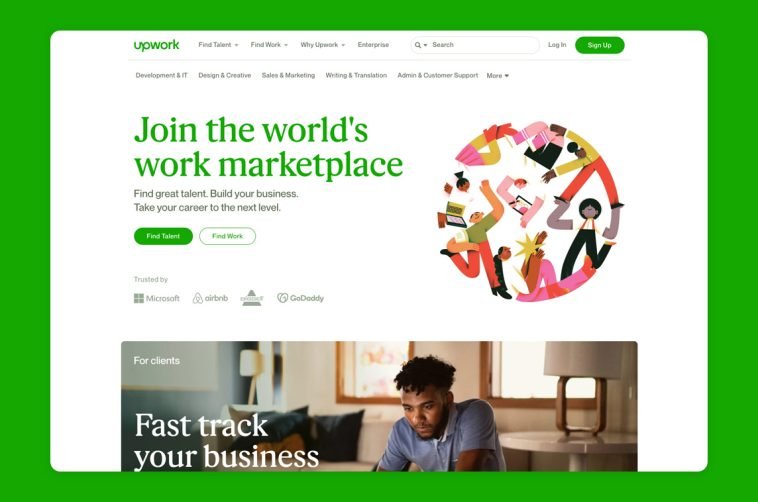Introduction.
Negotiating on Upwork is one of those skills that can make or break your freelancing career. If you’ve ever felt uncertain about how to approach a potential client or been unsure if you’re charging the right amount, you’re not alone.
As a freelancer, it’s not just about having the skills for the job—it’s about understanding how to navigate the platform, talk to clients, and secure projects that truly reflect your value.
So, let’s dive into the basics of how to negotiate on Upwork in a way that works for both you and your clients.
Negotiation is often seen as a tough or intimidating skill, especially for freelancers who may not have much experience doing it.
But trust me, it doesn’t have to be complicated. In fact, mastering a few key negotiation techniques can lead to more opportunities, better pay, and smoother relationships with clients.
I’m here to share everything you need to know about negotiating on Upwork, from understanding how to set your rates to handling tricky conversations with potential clients.
Why Is Negotiating Important on Upwork?
First things first—why should you care about negotiation? Upwork is a marketplace, meaning there’s always competition.
Clients have tons of freelancers to choose from, but that doesn’t mean they want the cheapest option.
Most clients are looking for the best value they can get for their money, and that’s where good negotiation comes in.
If you can clearly communicate why you’re the right fit for a job and explain your rates in a confident, respectful way, you can stand out from the crowd.
Negotiation isn’t just about talking money, either. It’s also about discussing deadlines, project scope, and expectations. Getting all of this right upfront can save both you and your client a lot of stress later on.
But let’s be clear—negotiating doesn’t mean you always have to push for a higher rate. It means finding a fair deal for both you and your client. It’s about balance and setting a solid foundation for a long-term working relationship.
Understanding Your Worth on Upwork
Before you even start negotiating, it’s crucial to know your worth. Upwork has a wide range of freelancers with different experience levels, so it’s important to understand where you fit in.
Start by researching how much other freelancers with similar skills and experience are charging. If you’re a beginner, your rates will likely be lower, but as you gain experience and a solid reputation on the platform, you can increase your rates.
Here’s a quick guide:
- New freelancers: Starting rates could be as low as $10 to $15 per hour, depending on the industry.
- Intermediate freelancers: Once you’ve gained a few clients and positive reviews, rates can range from $20 to $40 per hour.
- Experienced freelancers: If you’re skilled and have a strong portfolio, rates could easily be $50 to $100+ per hour.
These are just rough guidelines, but they’ll help you figure out where you should stand. A good rule of thumb is to start with a rate that feels fair to you, but also make sure it aligns with the market standards for your skill set.
How Do I Approach Negotiation with Clients?
Now that you’ve got an idea of your rates, let’s talk about how to handle the negotiation conversation with clients. Here are some steps that will help you feel more confident when discussing terms with potential clients:
1. Know What the Client Needs
The first step in any successful negotiation is to understand what the client is asking for. Before even thinking about rates or deadlines, take time to fully read through the job description and any additional messages the client sends.
Try to get a clear idea of what the client’s expectations are and what their goals for the project might be.
Once you understand their needs, you can tailor your pitch to show how you can solve their problems.
A lot of the time, clients are looking for specific solutions, and when you present yourself as someone who can deliver exactly what they need, you’ve already got a foot in the door.
2. Start with Your Value, Not Your Price
One of the biggest mistakes freelancers make is jumping straight into the price discussion. While it’s tempting to start negotiating based on numbers, you want to first highlight the value you bring to the table. Talk about your skills, your experience, and how you’ve successfully completed similar projects in the past.
For example, instead of saying, “My rate is $30 per hour,” say something like, “Based on my experience with similar projects and my expertise in [specific skill], I believe I can deliver high-quality work that meets your goals within the agreed timeline.”
This approach positions you as a professional who understands the client’s needs and is focused on delivering results.
3. Be Transparent About Your Rates
Once you’ve discussed your value, it’s time to bring up rates. Don’t shy away from being upfront about what you charge. If you’ve done your research, you should be confident in the rates you’re offering.
If a client tries to negotiate down on price, don’t feel pressured to lower your rate immediately. Instead, you can ask questions like, “Can you help me understand your budget and how that aligns with the scope of the project?”
This opens up the conversation for further negotiation and helps you understand where they’re coming from.
Sometimes clients are just trying to see if they can get a better deal, but if you’ve already shown them your value, they may be more willing to meet you at a fair rate.
4. Consider the Full Scope of the Project
When negotiating, it’s essential to consider all aspects of the project, not just the hourly rate. For example, how long is the project expected to take?
Are there any specific deadlines? Will there be revisions or ongoing work? These factors can influence your rate, so make sure to have a clear discussion with the client about the full scope of the work.
If the client is offering you a low rate, but the project seems like it will be a lot of work, you can propose a higher rate or suggest a flat fee instead of an hourly rate.
5. Handle Difficult Conversations Gracefully
Negotiation can sometimes get tense, especially if you and the client can’t agree on a price. If that happens, try to stay calm and professional.
Offer alternatives like adjusting the scope of the project or offering a payment plan that works for both sides.
Remember, negotiation isn’t about winning or losing—it’s about finding a solution that works for both of you.
Red Flags To Watch For During Negotiation
Not all negotiation attempts are worth your time. Sometimes, a client may try to undervalue your work or ask for unreasonable demands. Be on the lookout for these red flags:
- Unrealistic expectations: If the client asks for a huge amount of work with little budget or time, it might be a sign they’re not respecting your value.
- Clients who don’t communicate clearly: If a client is vague or unresponsive, it could lead to misunderstandings later on.
- A reluctance to discuss payment terms: If a client is hesitant to talk about how and when you’ll get paid, it’s better to be cautious.
FAQs
1. What should I do if a client wants to pay less than my rate?
You can explain why your rate is what it is by focusing on the value you bring to the project. If they still want to negotiate down, consider offering a different pricing structure, such as a flat fee, or discuss ways to adjust the scope of the project to fit their budget.
2. How can I make my Upwork profile stand out during negotiations?
Make sure your profile is clear, complete, and highlights your expertise. Include work samples, a detailed description of your skills, and any relevant certifications or experience that will help clients see the value you offer.
3. Is it okay to turn down a client if the pay isn’t right?
Absolutely! If the project doesn’t align with your rate or expectations, it’s okay to politely decline. It’s better to walk away from a project that doesn’t feel right than to take it on and risk burnout or feeling undervalued.
Conclusion.
Mastering the art of negotiation on Upwork takes practice, but once you get the hang of it, you’ll feel more confident discussing rates and terms with potential clients.
The key is to focus on the value you bring, be transparent about your rates, and handle tricky conversations with professionalism. So, are you ready to negotiate your next project and secure a deal that works for you?





GIPHY App Key not set. Please check settings